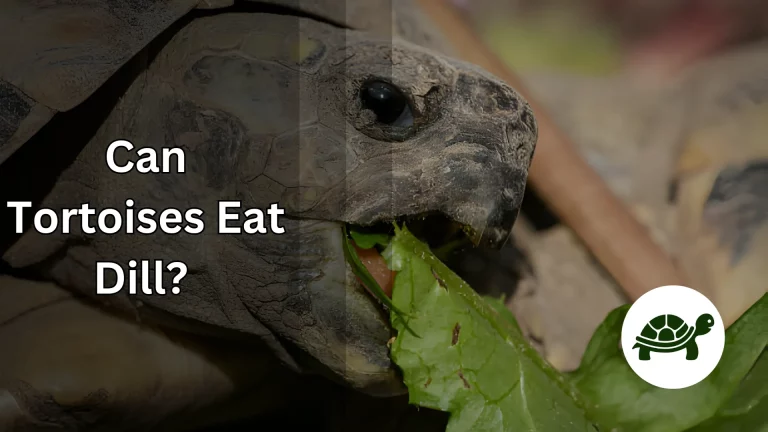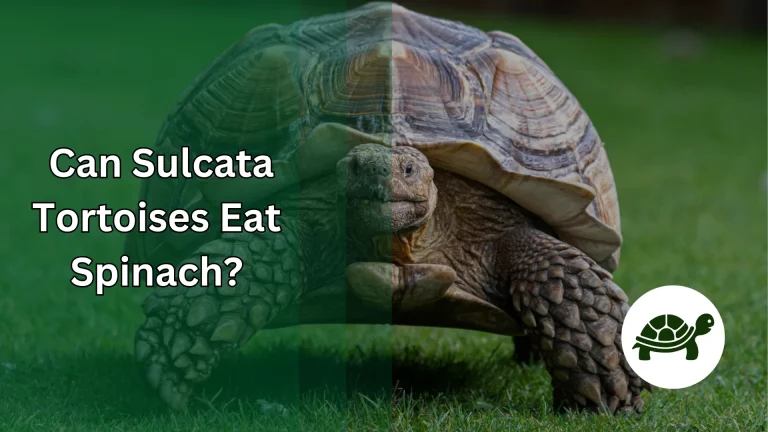Can Tortoises Eat Rosemary? – All You Need To Know
When it comes to the health and well-being of our shelled companions, understanding their dietary needs is crucial. Tortoises, with their unique nutritional requirements, often spark curiosity among pet owners about what foods are safe and beneficial for them. Rosemary, a common herb found in many kitchens, is one such food that raises questions. As a tortoise owner, you might wonder, “Can my tortoise safely enjoy rosemary, or should it be avoided?” This article aims to explore this question in depth, providing insights and guidance for tortoise dietary care.
Navigating the diet of a tortoise can be a complex journey, filled with do’s and don’ts that ensure their health and longevity. In this post, we delve into the specifics of rosemary as a potential addition to your tortoise’s diet. By examining the safety, benefits, and risks of rosemary for tortoises, we strive to offer valuable information that supports informed decisions about your pet’s nutrition. So, let’s embark on this herbaceous exploration together and discover whether rosemary is a suitable choice for your tortoise.
Understanding the Basic Diet of Tortoises
Tortoises are fascinating creatures, and their dietary needs are just as intriguing. Most tortoises are herbivores, meaning their diet consists primarily of plants. This diet is crucial in maintaining their health and well-being. A well-balanced diet for a tortoise typically includes a mix of vegetables, fruits, and greens. However, not all plants are safe for them. It’s essential to know which foods are beneficial and which to avoid.
The right diet helps tortoises maintain a sturdy shell and a healthy internal system. Leafy greens like kale and dandelion are excellent choices, providing necessary nutrients. Fruits, though, should be given in moderation due to their sugar content. The variety is key in a tortoise’s diet, but so is caution. Each species of tortoise has specific needs, making it important to tailor their diet accordingly.

For tortoise owners, knowledge about safe and unsafe foods is vital. A mistake in their diet can lead to health issues, some of which can be serious. Foods that are healthy for humans can sometimes be harmful to tortoises. For example, some vegetables might contain compounds that can disrupt a tortoise’s digestive system or cause shell deformities.
As we consider adding rosemary or any new food to a tortoise’s diet, understanding these dietary foundations is key. It ensures we make choices that enhance their health and happiness. In the next section, we’ll specifically examine rosemary and its place in a tortoise’s diet.
Discovering Rosemary: A Popular Herb
Rosemary is a herb that is as fragrant as it is popular in kitchens around the world. Recognized by its needle-like leaves and distinctive aroma, rosemary is a staple in many culinary traditions. This evergreen herb is not just known for its flavor but also for its use in natural remedies. It’s packed with antioxidants and essential nutrients, making it a favorite among health enthusiasts.
But what exactly is rosemary? It’s a member of the mint family, though its taste is quite unique. Rosemary has a slightly pine-like flavor, which makes it a perfect addition to a variety of dishes. People often use it to season meats, soups, and even bread. Beyond its culinary uses, rosemary is also appreciated for its pleasant scent. It’s commonly found in gardens and is easy to grow, adding both beauty and utility to home gardens.

When we talk about rosemary’s impact on health, its nutritional value comes into play. This herb is rich in vitamins and minerals, including Vitamin C, Vitamin A, calcium, and iron. Its antioxidant properties help in fighting free radicals, which are harmful to the body. Rosemary is also known for its anti-inflammatory benefits. These qualities make it not just a tasty, but a healthy addition to human diets.
As we explore the possibility of including rosemary in a tortoise’s diet, understanding these nutritional aspects is crucial. This knowledge helps us gauge whether rosemary can offer similar benefits to tortoises or if it poses any risks. In the next section, we’ll dive into the main question: Can tortoises safely eat rosemary?
Addressing the Main Concern: Is Rosemary Safe for Tortoises?
The central question for many tortoise owners is whether rosemary is a safe addition to their pet’s diet. While tortoises are primarily herbivorous, not all plants are suitable for them. When it comes to rosemary, the good news is that it’s generally considered safe for tortoises in moderation. However, it’s important to introduce it gradually to ensure it doesn’t upset their digestive system.
Rosemary’s strong flavor and aromatic oils, which are delightful in human cuisine, can be a bit overwhelming for tortoises. Therefore, it should be offered as a small part of a varied diet. The key is balance. Including small amounts of rosemary can provide some diversity in their meals without causing harm.

As with any new food, it’s crucial to observe how your tortoise reacts to rosemary. Start with tiny amounts and watch for any changes in behavior or health. If your tortoise enjoys rosemary and shows no adverse effects, it can be a periodic treat. Remember, the mainstay of a tortoise’s diet should be leafy greens and vegetables, with herbs like rosemary being just a small component.
It’s also wise to consult with a veterinarian who specializes in reptiles before making significant changes to your tortoise’s diet. This ensures that any new additions, including rosemary, are suitable for your specific type of tortoise. Each species has its own dietary needs, and what works for one may not be ideal for another.
Potential Health Benefits of Rosemary for Tortoises
While rosemary is a new food for many tortoises, it might offer some benefits when included in their diet appropriately. One of the key advantages of rosemary is its rich antioxidant content. Antioxidants play a vital role in overall health, helping to protect the body’s cells from damage. For tortoises, these antioxidants can contribute to a stronger immune system and better health.
Rosemary also contains essential vitamins and minerals. Vitamins like Vitamin A are crucial for a tortoise’s vision, skin health, and immune function. The calcium present in rosemary is beneficial for shell health, an important aspect for tortoises. These nutrients, when added to a balanced diet, can support the overall well-being of your shelled friend.

Introducing rosemary to a tortoise should be done cautiously. If your tortoise seems to enjoy and tolerate this herb well, it can be a healthy addition. It’s important to remember that moderation is key. Rosemary should be a small part of a varied diet, not a main component. Mixing it with other safe greens and vegetables can make it more appealing and nutritionally balanced for your tortoise.
Always ensure that any rosemary given to your tortoise is fresh and free from pesticides. Wash it thoroughly before offering it to your pet. This helps in maintaining a safe and healthy diet for your tortoise, letting them enjoy the benefits of this herb without any risks.
Understanding the Risks of Feeding Rosemary to Tortoises
While rosemary can be a safe and beneficial addition to a tortoise’s diet, there are some risks and considerations to keep in mind. The first concern is the strong aroma and oils present in rosemary. These can sometimes be overpowering for tortoises, especially if offered in large quantities. It’s crucial to ensure that rosemary is given in small, manageable amounts to avoid digestive upset or aversion.
Another consideration is the potential for allergic reactions. Just like humans, tortoises can have sensitivities to certain foods. Introducing rosemary, or any new food, should be done gradually and with close observation. Watch for signs of discomfort, refusal to eat, or changes in stool. These could indicate that rosemary is not suitable for your particular tortoise.
It’s also important to remember that a tortoise’s diet should be varied and balanced. Relying too heavily on any single food, including rosemary, can lead to nutritional imbalances. A tortoise’s diet should primarily consist of leafy greens, with herbs and other foods as occasional supplements. Ensuring a diverse diet helps maintain optimal health and prevents nutritional deficiencies.
Consulting with a reptile veterinarian can provide valuable insights into the suitability of rosemary for your tortoise. They can offer guidance based on your tortoise’s species, age, health, and specific dietary needs. This professional advice is crucial in making informed and safe dietary choices for your pet.
Frequently Asked Questions
1. What other herbs are safe for tortoises to eat?
Apart from rosemary, tortoises can safely eat a variety of herbs such as parsley, dandelion greens, and coriander. These herbs offer different nutrients and flavors, adding variety to their diet. Remember, the key is to introduce any new herb gradually and ensure they form only a small part of the overall diet.
2. How often can I feed rosemary to my tortoise?
Rosemary should be given as an occasional treat rather than a regular part of the diet. A good rule of thumb is to offer rosemary once every couple of weeks. This frequency allows your tortoise to enjoy the benefits of rosemary without overdoing it.
3. Can baby tortoises eat rosemary?
For baby tortoises, it’s best to stick to a more basic diet tailored to their delicate digestive systems. Introducing herbs like rosemary can be done when they are older and their diet starts to diversify. Always consult with a vet before adding new items to a baby tortoise’s diet.
4. Is dried rosemary as beneficial as fresh rosemary for tortoises?
While dried rosemary is not harmful, fresh rosemary is generally a better option for tortoises. The drying process can reduce the nutrient content, and dried herbs can be more concentrated in flavor, which might be overwhelming for your tortoise.
5. What signs should I look for to ensure my tortoise is tolerating rosemary well?
After introducing rosemary, monitor your tortoise for any changes in behavior, appetite, or stool. Signs of good tolerance include normal eating habits and no digestive issues like diarrhea. If you notice any adverse reactions, discontinue rosemary and consult with your veterinarian.
Summarizing the Role of Rosemary in a Tortoise’s Diet
In conclusion, rosemary can be a safe and occasionally beneficial addition to a tortoise’s diet when used in moderation. This fragrant herb offers a mix of antioxidants and essential nutrients that can contribute positively to your tortoise’s health. However, it’s important to remember that the cornerstone of a healthy tortoise diet is variety and balance. While rosemary can provide a change of pace in their meals, it should never replace the core components like leafy greens and vegetables. Always prioritize a diet that supports the unique nutritional needs of your tortoise, keeping their well-being at the forefront.
As responsible pet owners, it’s our duty to continually educate ourselves about the best practices in tortoise care, including their dietary needs. Regular consultation with reptile veterinarians and staying informed about safe dietary options are essential steps in ensuring the health and happiness of our shelled companions. Whether you’re considering introducing rosemary or any other new food to your tortoise’s diet, the key is to proceed with caution, knowledge, and care. By doing so, we can provide the best possible care for our beloved tortoises, helping them thrive under our watch.







